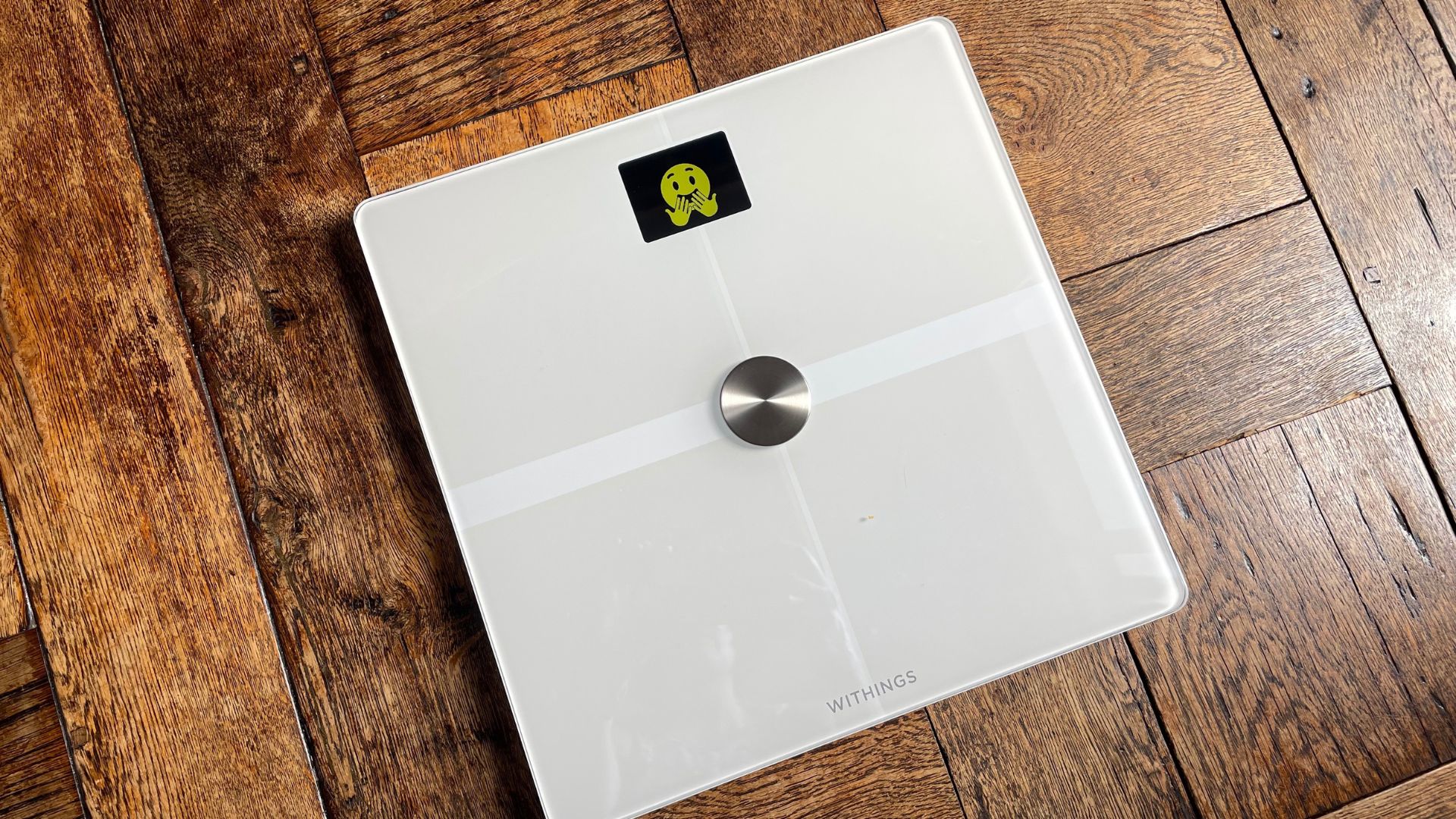What I Love About Withings’ Eyes-Closed Mode
This new feature on the tech firm’s Body Comp scales feels like receiving a pat on the back rather than a kick in the teeth

Sign up for workout ideas, training advice, reviews of the latest gear and more.
You are now subscribed
Your newsletter sign-up was successful
I have had a complicated relationship with bathroom scales since I was a teenager. The number that flashes up as I step on has the power to make me feel like I am winning at life or completely and utterly losing. When I heard that Withings was bringing out an eyes-closed mode on its smart scales it was music to my ears.
I have struggled with weight fluctuation for most of my adult life and usually my weight gain is accompanied by an extended period of stressful life circumstances. When I am already feeling fed up, the last thing I want to see in the morning is a disappointing number informing me that I have put on a kilo since yesterday or only lost a pound despite exercising and eating no carbs all week. The feeling is discouraging, to put it mildly. It feels like a kick in the stomach when I am already down, which usually makes me want to eat more.
You might say, well just don’t weigh yourself then, but the truth is that would be irresponsible. My health is everything to me. Keeping track of your weight is important for so many reasons that have nothing to do with body image or beauty standards. Obesity is linked to many diseases, a fact that can’t be ignored and there are times it can directly alert you to a serious medical condition.
There are times I feel strong enough to look at the number, and with this feature on the Withings’ scale I can pick and choose when that is
I was steadily losing weight over a period of four years following an ultra-low carb lifestyle that I was sticking to 80% of the time. The weighing scales became a joyous part of my day. I would step on them every morning and see that I had lost another pound, which made me feel happy. That was until the week where I indulged in lots of carbs and didn’t do any exercise and I still lost a lot of weight. I knew something wasn’t right, I was also feeling extremely tired.
While everyone was congratulating me on my weight-loss achievement, something more sinister was going on and it was silently killing me. I was living with undiagnosed adult-onset type 1 diabetes, my pancreas had stopped producing insulin and I was wasting away. My body was shutting down.
Since I started injecting life-saving insulin I have gained an unsightly amount of weight. While insulin is a wonder drug it is also our primary fat storage hormone, which makes weight loss harder than usual.
When I go for my quarterly diabetic checkups at the hospital, the first thing I have to do at each appointment is get on the scales. I step onto them backward, with my head facing the opposite direction so that I don’t see the number.
Sign up for workout ideas, training advice, reviews of the latest gear and more.
Type 1 diabetes requires 24/7 management and is mentally exhausting. On top of type 1, I have been through what I would describe as the worst year of my life. With so much additional stress to deal with I have not had the mental strength to deal with the dreaded number on the scales.
This doesn’t mean that I am in denial, it simply means that there are days I just don’t have the mental capacity to deal with that information and risk it triggering me to eat more, potentially writing off the day or even a whole week of healthy eating.
There are times I feel strong enough to look at the number, and with this new feature on the Withings’ scale I can pick and choose when that is, by logging into the app. I can check in when I feel like it and analyze my weight trends, fat distribution, muscle mass, water retention, heart health and even nerve health—and do it with a sense of calm and control.
In place of a number, the scale flashes up a smiling face followed by a series of motivational messages as it takes your measurements behind the scenes and sends them to the app. Stepping on the scales in eyes-closed mode feels like receiving a friendly pat on the back rather than a kick in the teeth. It is a “well done” for stepping on the scales today, it is an acknowledgment that you are doing your best, you aren’t burying your head in the sand, you do care about your health, and you are on the right path. It’s like having a little electronic friend on the bathroom floor that understands stepping onto a scales might be triggering and they are here to help you look after yourself and keep you on track.
I believe that the social, physical and emotional discomfort that obesity creates drives you to eat more, usually in secret. That is a pattern that I have observed in myself over the past three decades, I can see it so clearly now as an almost 46-year-old woman, curious to find solutions and look after myself as best I can.
We all know what to eat and what not to eat to manage our weight, but the missing link in the global obesity epidemic is the emotional and psychological side of weight gain. With the eyes-closed mode Withings has considered thought patterns, behaviors and self-esteem.
Find out more about the scale in our Withings Body Smart review, and see all our recommendations of the best smart scales.

Alice Dogruyol is a UK-based writer and publicist, who has written extensively on body image, health, and weight loss, with a particular focus on health tech, ketogenic low-carb living, blood glucose management, and type 1 diabetes—a condition that she lives with. Dogruyol has written the Alice in Weight Loss Wonderland column for Top Santé magazine since April 2023.
